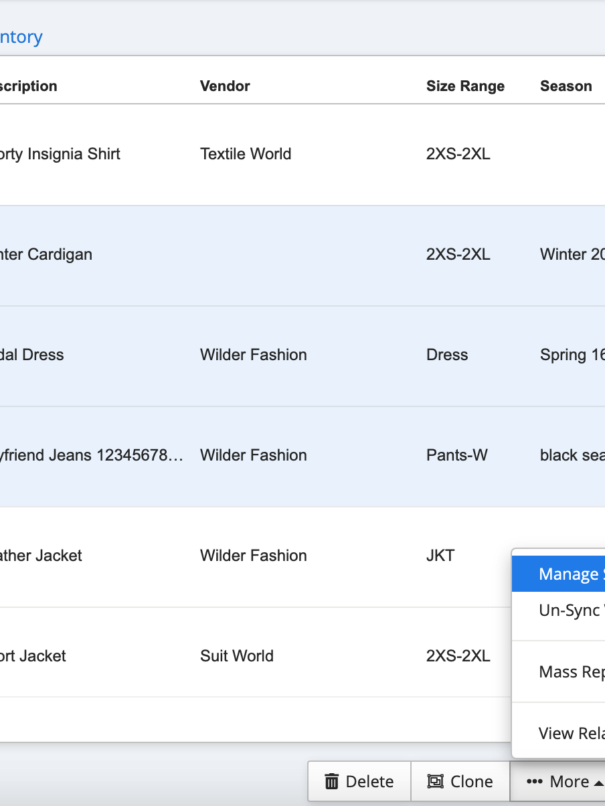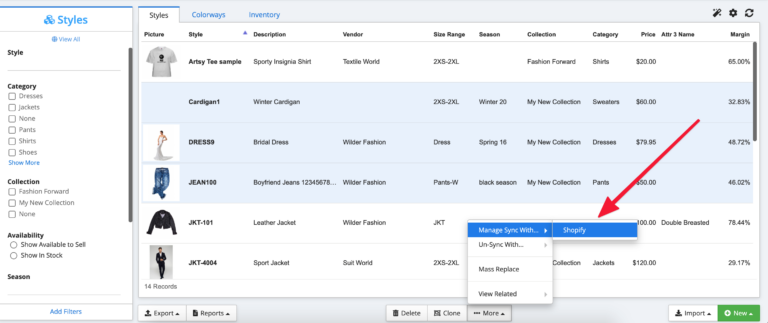Running a successful eCommerce company takes more than just having an online store. eCommerce business owners require a variety of software and solutions, including inventory management, CRM, marketing automation software, and others, to meet their operational demands. These solutions need to be incorporated into an eCommerce site, reducing the need for human interaction and saving businesses a ton of money and time. Because of this, eCommerce integrations are a crucial topic for online retailers.
In this post, we’ll discuss a few important eCommerce integrations that you can use to enhance or streamline your online store and succeed in the long run.

Photo by Mark König on Unsplash
What is eCommerce Integration?
The interaction between a company’s front-end system, such as a website, and the assisting back-end systems, including Enterprise Resource Planning (ERP) and Customer Relationship Management (CRM) systems, can be defined as eCommerce integration.
In other words, eCommerce integrations let you alter the appearance of the website’s front end while taking care of a lot of complex processes in the background.
eCommerce platforms like Shopify, Magento, and BigCommerce may not always have the inherent features you need. Adding a few eCommerce integrations to your store can help you get the user experience you want, even before you launch your online store.
Why Do You Need eCommerce Integration
Integration of eCommerce provides organizations with the advantage they require to remain relevant and innovative.
Assurance of data accuracy and integrity is one of the more noticeable advantages of eCommerce integration. The appropriate data enables businesses to recognize potential market trends and maintain their leadership in their sector. Accurate information on pricing and inventory also motivates clients to stick with your company.
eCommerce integrations help with the reduction of errors and duplicate data. Instead of first passing via other independent systems, which can necessitate the duplication of data, integration enables the storage of data in one centralized system. eCommerce solutions greatly decrease the requirement for manual data entry and virtually eliminate any chance of data loss or duplication.
It also helps increase customer satisfaction and customer loyalty. eCommerce integration maintains transparency in a company’s operations and, in doing so, gets rid of excesses that may otherwise put off customers from making use of the convenience they provide. In addition, it aids in expanding sales networks, making sure that customers are given the greatest options possible. eCommerce integrations also enable a company to manage its resources more efficiently, which benefits your customer base by ensuring they receive the finest service possible, contributing to increased customer retention.
Integration reduces processing time by accelerating the data interchange between the associated systems. Additionally, it enables periodic system updates as well as ongoing inventory updates for the company. Businesses are also spared from having to sort through reams of identical data, keeping them suitably engaged with and focused on their main objective – the provision of high-quality goods or services.
At the bottom of it all, eCommerce integrations promote business growth. The more satisfied your customers are, the more likely it is that they will recommend your company to other possible clients who could be in their networks, providing valuable (and free-of-charge) word-of-mouth advertising. In the wake of the Covid pandemic, which fundamentally altered how business is conducted, eCommerce integration also aids organizations in maintaining flexibility and mobility.
How to Integrate Your Website: Best eCommerce Integrations for Your Business
Here are 9 essential eCommerce integrations that every online company should take into consideration:
1. Inventory management integration
Spreadsheets used for manual inventory management rely on fragmented data, which makes it difficult to manage across channels and inhibits the inventory visibility required during a busy period like the holidays. In order to run your online business successfully, you need to be able to manage inventory and track orders in one location.
Because of synchronization and real-time visibility provided by a third-party solution connected to your website, you can concentrate on expanding your business rather than inventory management. By integrating inventory management software like ApparelMagic, you can keep track of items sold, determine which products are most in demand, and decide when items need to be restocked. Integrations with inventory management systems also aid in maintaining a good supply and demand ratio and preventing missed sales.
2. ERP Integration
Enterprise Resource Planning (ERP) is software that companies use to manage and automate daily business-related processes such as project management, procurement, supply chain management, risk assessment and management, accounting, and human resource management. Automating such tasks makes complicated procedures simpler, which significantly lowers the amount of physical labor necessary to carry them out successfully on a regular basis.
eCommerce integration with ERP can help with a variety of tasks such as placing orders, reflecting inventory changes, updating customers, reflecting pricing adjustments, etc.
3. Warehouse management integration
WMS (warehouse management system) is essential for businesses to meet customer demand while preserving costs. In order to ensure order fulfillment by maintaining precise inventory capacities, eCommerce suppliers and retailers are adopting WMS software to address issues like overselling, picking and packing speed, customer returns, and more.
WMS is also important for dropshipping operations as it is required to sync a retailer’s inventory with those of the suppliers because dropshipping necessitates sourcing from several warehouses.
4. Customer relationship management integration
CRM (customer relationship management) integrations allow online businesses to grow and strengthen their business relationships with existing and potential customers.
This kind of software keeps all of the client’s data in one place, including contact information, transaction history, and support summaries. The ultimate objective is to assist the company in enhancing business interactions, customer communications, and business profitability. CRM also helps eCommerce businesses derive actionable insights based on customer behaviors ranging from web usage stats to social media behaviors, to help them adjust their customer service approach and enhance customer acquisition.
5. Shipping and fulfillment software
Shipping can have a significant impact on how rapidly your business expands or fails. Thanks to the prevalence of accelerated shipping services like Amazon Prime, today’s customers expect fast shipment that is either free or cheap. In addition, they don’t appreciate receiving unexpected shipping charges during the checkout process, which is one of the main causes of shopping cart abandonment in many online retailers (the average shopping cart abandonment rate ranges from 59% to 79%).
Shipping and fulfillment software integrations help automate and simplify a number of shipping tasks like checking shipping costs from several suppliers, tracking shipments, and printing packing slips and labels. This type of integration can help online businesses lower the possibility of human error and give their clients the shipping options that are most suitable for them.

Photo by Roberto Cortese on Unsplash
6. Social media integrations
Considering the fact that there are over 302 million social media users in the US, social media platforms are a terrific location to listen to customers, engage with them, help solve problems, and influence their buying decisions.
Social media integrations can help eCommerce businesses automate conversations, save time, and make sure they are communicating their brand’s message consistently. You can incorporate interaction data from your social media management tool into your analytics dashboard to understand how much traffic social media platforms are driving to your shop. Social media can act as a stand-in for your customer service as well; for example, responding to a client’s inquiry or comment on Facebook is frequently quicker and simpler than doing so via email.
7. Email marketing integrations
Email is one of the preferred digital marketing tools when it comes to promotions and discount codes, store modifications or additions, and it is also frequently used for order confirmations and cart abandonment emails. Employing email integrations on your eCommerce site can help you with building email lists by gathering email addresses from browsing visitors so that you can follow up with them and entice them to convert to consumers.
Using eCommerce platforms in conjunction with an email marketing platform like MailChimp enables businesses to centralize and track customer data in one location.
8. Accounting integrations
Whatever you sell, make sure that your accounting solution integrates easily with your storefront. An accounting integration allows you to manage budgeting, bookkeeping, profit-and-loss charts, keep track of payroll, and create invoices. In essence, it’s a method for automatically syncing the sales and order data from your eCommerce site with your financial data.
9. Content management integrations
Content management systems (CMS) are used to manage and distribute text, photos, videos, and other pieces of content. Search engines find it difficult to index and follow the amount of virtually identical product pages that are continually migrating on and off an eCommerce website. By taking account of things like SEO, duplicate content, and canonical tags, a content management system tells search engines what these product pages are and what to expect from them.
Manually creating and maintaining these product pages can only result in heaps of content and open the door to a long list of SEO penalties that many business owners might not even be aware of.
The Bottom Line
It takes a lot of work to run a successful business online, but there are ways to speed up and simplify the process.
Integrations across several software programs enable you to automate operations, synchronize vital sales data, scale high-quality products and services to more clients, and reduce the likelihood of a human mistake.
The right integrations will enable you to deliver consistent shopping experiences across all of the touchpoints of customer journeys, from order and inventory management to social media and email marketing, regardless of the eCommerce platform you are using.






